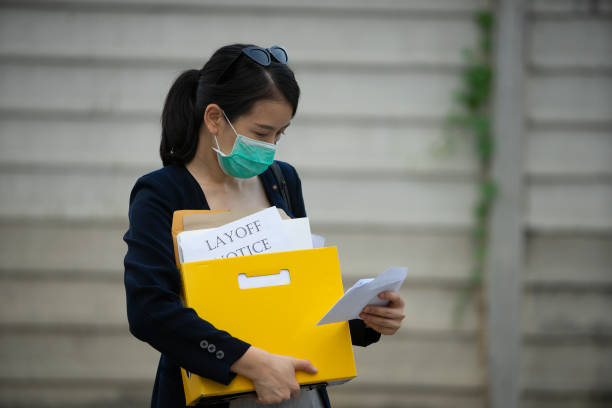
Redundancy, is it genuine or is it dodgy?
Were you just made redundant? If so, are you confused about what to expect and what you’re entitled to? Then this is the article for you. Being made redundant can be an extremely stressful experience. Especially if you think that the redundancy wasn’t genuine. That’s its dodgy. The good news is, if you believe that the redundancy wasn’t genuine then there are a few things that you can do about it. Fair work redundancy has been covered in previous blogs. However despite low unemployment figures, redundancies and dismissals are now on the rise. To be armed is to be forewarned.
This is particularly happening in the probation period. Under 12 months employers don’t have to pay redundancy. Its become an easy out for the employer just to say “sorry things have gone a bit quite, unfortunately we have to make your redundant”. When its really about other matters. If you want to challenge your dismissal whatever the reason, be aware of the strict 21 days to lodge a unfair dismissal claim.
Why was I made redundant?
You can be made redundant for a couple of genuine reasons. Either there is no longer a need for your job, or your employer has gone insolvent or bankrupt. There are so many things that can cause those two scenarios to happen. Your company may have restructured due to a merger, sales have dropped, technology made your job obsolete, your company relocated, or it simply shut down. Any of these situations can show that the redundancy was genuine, however, there are still procedures that need to be followed. If it is a genuine redundancy then somehow you have to make the best of a difficult situation.

What is a genuine redundancy?
As mentioned above, a genuine redundancy occurs when there is no longer a need for your job. Once this occurs your employer needs to follow any consultation requirements in your award or enterprise agreement. If these requirements aren’t met, then that’s when your ‘redundancy’ may be looking more like an unfair dismissal. This is set out in S389 of the Fair work Act 2009
What’s the difference between a genuine redundancy and an unfair dismissal?
If your redundancy is genuine then you cannot make a claim for unfair dismissal to the Fair Work Commission. Your redundancy is not genuine when there is still a need for the job, a good indicator for this is if your employer hires someone else to do the job either before, or almost immediately after you leave. (look on the Google, you will be surprised how often your employer has advertised your job).
Even if your job is genuinely redundant, if your employer does not consult with you, as per the requirements in your award, then it becomes an unfair dismissal. If the redundancy is genuine then the employer should also try and find you another job with their company or an associated entity. If your employer does not make reasonable attempts to do this, then may be an unfair dismissal.

What are the consultation requirements employers must follow?
While it may depend on your award or enterprise agreement, there are a few main or bare minimum consultation requirements every employer must follow if they are going to make employees redundant. These requirements need to be actioned as soon as the employer knows that the changes to their company will result in redundancies. These requirements include notifying affected employees as soon as possible, this means that they will (hopefully) have a chance to find future employment after the redundancy takes effect.
The employer should also provide employees with information about the changes in the company, and how these changes will affect employees. The company should outline the steps they took to reduce the negative effects of these changes and they should accept input from employees about how to reduce these affects.
So how much should you get paid out if you are redundant?
Section 119 of the Fair Work Act 2009 (Cth) outlines the redundancy pay period owed to you based on your years of continuous service. See the table below to know what your entitlements are:
| Period of continuous service | Redundancy pay |
| At least 1 year but less than 2 years | 4 weeks |
| At least 2 years but less than 3 years | 6 weeks |
| At least 3 years but less than 4 years | 7 weeks |
| At least 4 years but less than 5 years | 8 weeks |
| At least 5 years but less than 6 years | 10 weeks |
| At least 6 years but less than 7 years | 11 weeks |
| At least 7 years but less than 8 years | 13 weeks |
| At least 8 years but less than 9 years | 14 weeks |
| At least 9 years but less than 10 years | 16 weeks |
| At least 10 years | 12 weeks* |
Pay Basis
These payments will be made based on your base-rate and will not include bonuses, loadings, monetary allowances, overtime or penalty rates, or any other additional amounts on top of your base rates. The reason for employees working more than 10 years only getting 12 weeks redundancy pay is due to the Redundancy Case decided in 2004 by the Australian Industrial Relations Commission. The Commission decided that the pay would be reduced to avoid doubling up with the long service leave entitlements these employees have. If you are made redundant you are also entitled to all accrued leave including annual leave and long service leave.

What if my employer says that I am not eligible for redundancy pay?
Some employees that are employed for certain periods or under specific circumstances will not be eligible for redundancy pay. Employees working for under 12 months will not be eligible. Additionally, employees employed for a stated amount of time, a specific project or a particular season will be ineligible. Other employees without the right to redundancy pay include those fired for serious misconduct, casual employees, trainees who are only employed for their training agreement, apprentices and employees of a small business that has less than 15 employees.
To determine if you are part of a small business, you must count all the employees employed at the time of redundancy, including any others being terminated at the same time. The time of dismissal is when you are provided with your notice, not the actual day that you stop working. You cannot count casual employees unless they are employed on a regular and systematic basis. You can count employees of associated entities, including those that are based overseas.
What happens if my employer goes bankrupt and says they can’t pay me?
Don’t worry! If your employer goes bankrupt and can’t afford to pay your redundancy, then there’s a backup option. You can still get up to 4 weeks per full year of service of redundancy pay through the Fair Entitlements Guarantee scheme.
You can also get other entitlements owed to you paid out as well. These include up to 13 weeks of unpaid wages, all accrued leave, and up to 5 weeks of pay in lieu of termination notice. Unfortunately, the Fair Entitlements Guarantee does not include superannuation, reimbursement payments, one-off irregular payments, bonuses, or any other irregular commissions.

Has the employer followed the correct steps
Overall, when being made redundant you need to make sure that your employer is following the correct steps, otherwise you may be able to make an unfair dismissal claim. Your employer must follow the consultation requirements. If they have followed these, make sure you are getting paid the correct amount. The minimum pay periods are listed in the table above, but be sure to check your award or agreement as you may be entitled to more than the minimum requirements.
If you think that the redundancy isn’t genuine, maybe they hired someone for the same role as soon as you left, then you may have a case of unfair dismissal. If you are ever unsure, it may be best to seek legal advice to ensure that your rights are protected, and you get what you’re owed.
I am on a high salary, I’m i entitled to redundancy?
If you are an employee in the National System, your redundancy entitlements are guaranteed by the National Employment Standards (NES). This sets the mimunim that your entitled to. The fact that you are a high income earner, does not, on its own, prevent you from redundancy entitlements. There are several factors to consider.
An employee will be entitled to a redundancy payment under the NES if:
- they have been working for their employer for over 12 months;
- their employer is not a Small Business Employer under the Fair Work Act 2009; and
- their employment is terminated by the employer because their position is no longer required to be performed (and the employee cannot be redeployed within the employer’s business or an associated entity).

What is ‘other alternative acceptable employment’?
As the definition of ‘other alternative acceptable employment’ is not included in the Fair Work Act 2009 (Cth) we need to look to case law instead to help us determine whether an offer falls into the category of ‘other acceptable employment’. Deputy President Sams identified some key commonalities in the FWC’s approach: The test of what constitutes ‘acceptable employment’ is an objective one. It does not mean it must be acceptable to the employee.
‘Acceptable employment’ is not identical employment, as no two jobs could be exactly the same.
An employee must meaningfully cooperate with the employer in exploring or considering options for alternative positions.
An employee’s prima facie entitlement to redundancy pay may be at risk if the employee refuses a role or position, which is found to be objectively ‘acceptable’.
The acceptance of alternative employment by one or more persons in a group of redundant employees, does not necessarily make the alternative employment ‘acceptable’ for all of them. Each employee’s individual circumstances must be taken into account.
There are a range of factors of varying weight, according to an employee’s particular circumstances, which may be taken into account to assess the acceptability of alternative employment.”
Deputy President Sams
The member at the Fair work Commission lays out the main considerations:
Mere rejection by the employee does not make the offer unacceptable. Comparable or equivalent pay and conditions, including hours of work and continuity of service are important and relevant considerations. The location and any additional travel time are a relevant consideration. There may be some inconvenience or detrimental alteration to the terms and conditions of employment. An employee should not unreasonably refuse an offer of alternative employment simply to access redundancy pay.
(Spotless Services Australia Limited T/A Alliance Catering [2016] FWC 4505 at 65).

Acceptance of what’s occured
Somewhere in the process you have to accepted that the situation is real and you have decided you have to move forward. You may still feel a little bit frustrated or sad at times – its unlikely that you’ll be feeling overjoyed about your situation. (some employees are ok with this, its time to move on, the redundancy payment is substanial, you want out of a toxic workplace and this is the push). But the main thing is you have accepted it and are keen to move on with your life. You may start to consider some of these things:
- Think about whether you want to find a new job in the same sector, make a career change, possibly relocate interstate or overseas. Even consider starting your own business..
- Update your CV with all the achievements you gained from your last job. My advice is to get you CV professionally prepared or reviewed.
- Contact people within your professional network (Linkin, Facebook groups) that you haven’t been in touch with for a while.
- Don’t ‘burn your bridges’ with your previous employer. You may need them to give you a reference for your next job. Alot of employees have some hurful or nasty things to say on the way out. Avoid this.
- Update your skills and knowledge. Research what employers are looking for, and increase your employability by doing a short course or making connections in this area. At least make it look like your skills and presentation are in keeping current practises.
- Work on yourself, increase your execise, do some breathing execises, walk, run whatever helps you to unwind. No prospective employer whats to give a job to someone who looks or is stressed out.
Conclusion to: Fair work redundancy
Thank you for reading the article “Fair work redundancy”. I hope it was informative for you, there is no easy answer though this workplace maze of redundancies. Get advice. We are A Whole New Approach P/L, We are not lawyers. Many consider AWNA the nations leaders in workplace commentary, advice, representation and research. We confront the hard issues. AWNA are not here to be controversial and show offs for publicly, we leave that to others. We are proud of our staff and the outcomes we get for our clients.
Call 1800 333 666 for free, prompt advice
Articles similar to: Fair work redundancy
Redundancies may soon be on the rise what are your rights
How much is my unfair dismissal case worth
Perils of GPT chat, will the redundancies start coming?






